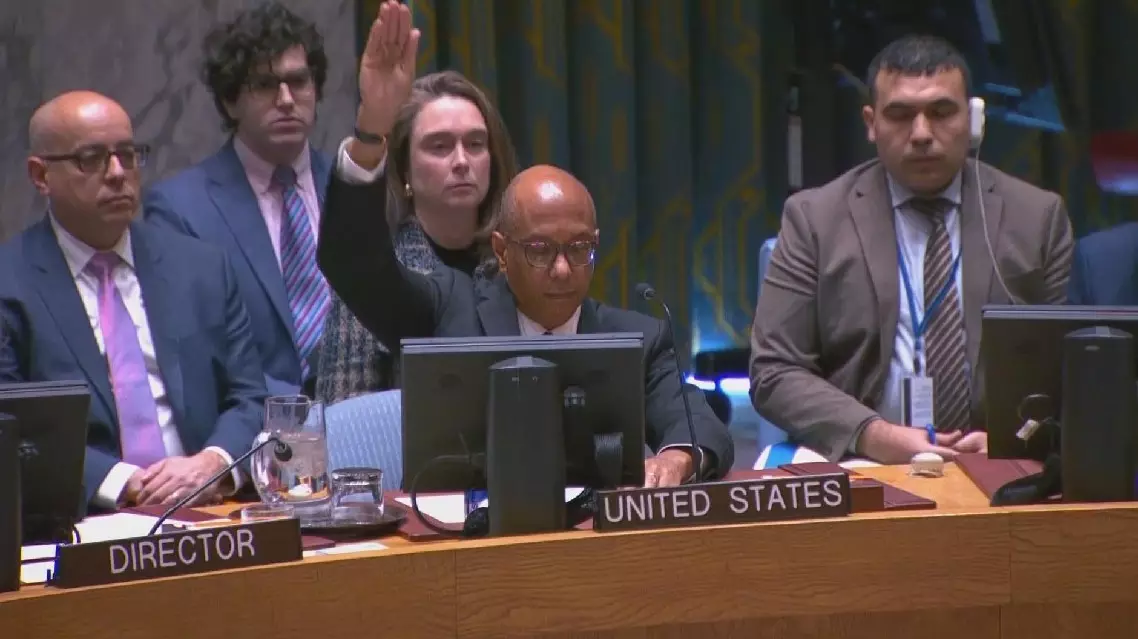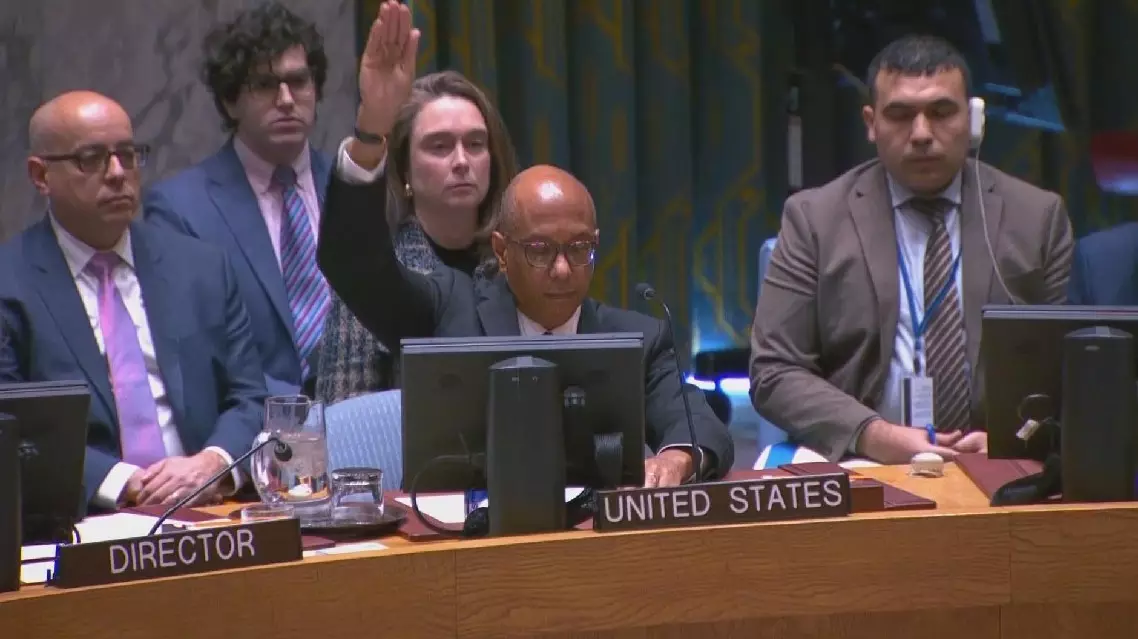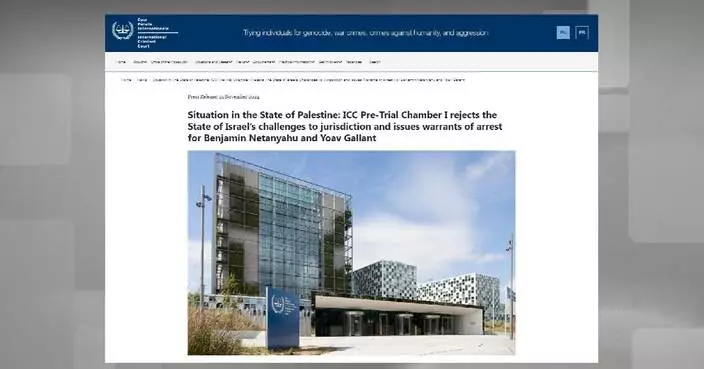The latest veto by the United States of a U.N. Security Council draft resolution on ceasefire in the war-ravaged Gaza Strip once again shows that the U.S. positions itself against the international community, turning a blind eye to the protracted war in Gaza and the unprecedented humanitarian crisis in the Palestinian enclave, Chinese experts say.
The Security Council on Wednesday voted on the draft resolution on a ceasefire in Gaza, and the United States once again exercised its veto, resulting in the draft resolution not being passed.
The draft, put forward by the Security Council's 10 non-permanent members, demanded an immediate, unconditional and permanent ceasefire, as well as the immediate and unconditional release of all hostages.
The 15-member Security Council voted 14-1 in favor of the resolution, and the United States used its veto as a permanent Council member to block it.
This is the sixth time that the U.S. vetoed a U.N. Security Council draft resolution on Gaza ceasefire since the start of the latest round of Palestinian-Israeli conflict on October 7, 2023.
"The the reason why the United States is so partial to Israel is actually a geopolitical one. The United States attaches great importance to expanding its influence in the Middle East, while Israel is regarded by the United States as the most important strategic asset in the Middle East. The United States still views Iran as a major regional threat, and Israel can effectively help the United States counter the risks posed by Iran's expansion," said Tian Wenlin, a professor at the School of International Studies of Renmin University of China.
The Palestinian death toll from the ongoing Israeli attacks in Gaza has risen to 44,176 and the total injuries reached 104,473, Gaza-based health authorities said in a statement released on Saturday.
The international community has issued a resounding call for an immediate ceasefire in the Gaza Strip. However, the U.S. has repeatedly blocked the Security Council's draft resolution calling for such action. With unwavering support from the United States, Israel has repeatedly crossed the 'red line' of international law, exacerbating the humanitarian crisis in Gaza.
"It is precisely because the U.S. has spared no effort to support Israel on the international stage, so that Israel can ignore international law, as well as the pressure and challenges from the international community, and commit humanitarian and war crimes that violate international law in Gaza. I believe it is no exaggeration to say that the United States is a significant source of the Palestinian-Israeli conflict," Tian said.
Even though the ceasefire resolution has been passed in the U.N. Security Council, the U.S. still tries to block it, which makes it difficult to really implement the relevant resolutions, such as Resolution 2735 adopted in June this year.
"Just at a point when the international community was filled with confidence, counting on the implementation of the Security Council resolution and an immediate ceasefire in the Gaza Strip, the representative of the United States to the United Nations issued a statement immediately after the resolution was adopted, claiming that the resolution was not binding. This made it difficult, if not impossible, to implement the United Nations Security Council resolution, namely UNSC Resolution 2735. Therefore, it is evident that the U.S. is actually the main retrogressive driving force to the ongoing spread of this conflict to this day," said Li Shaoxian, director of China-Arab Research Institute at Ningxia University.
The U.S., for the sixth time, single-handedly used its veto power to block a draft resolution on ceasefire in Gaza, which once again resulted in the stagnation of Security Council and other international efforts, said Chinese Foreign Ministry Spokesman Lin Jian in a press conference in Beijing on Friday.
The international community is once again reminded of U.S.-style application of double standards, and the U.S. once again stands on the opposite side of international call for ceasefire, of the hope of survival for the Palestinian people, and of the conscience of humanity, he noted.
"The repeated vetoes by the U.S. have seriously damaged the legitimacy and authority of the United Nations, making it difficult for the organization to achieve significant progress in addressing major regional conflicts and international events, such as the Palestinian-Israeli conflict. At the same time, these vetoes have also seriously undermined the current international governance system, its capacity, and its patterns on a global scale," said Zhu Yongbiao, director of the Center for Afghanistan Studies at Lanzhou University.

U.S. stands on opposite side of international community by vetoing ceasefire in Gaza: experts

U.S. stands on opposite side of international community by vetoing ceasefire in Gaza: experts









